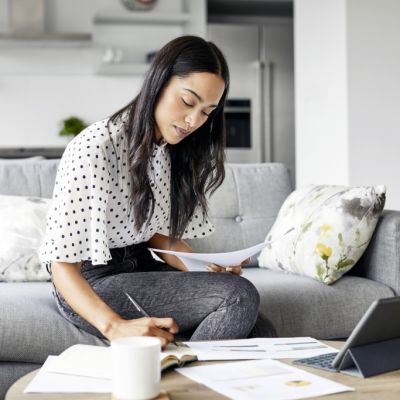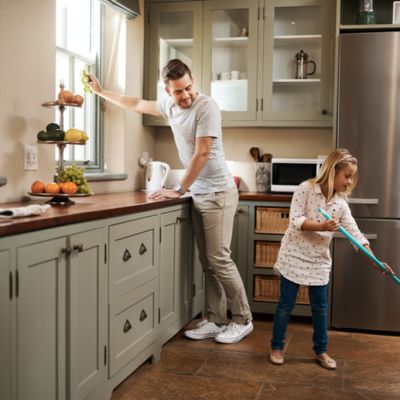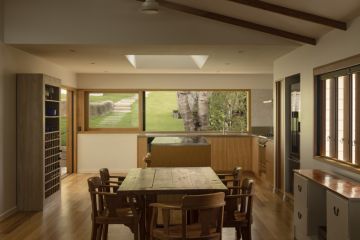5 household tasks to do in your work-from-home lunch break

Tradition dictates that a lunch break is for eating. But the truth is, if you’re working from home, there are better ways to structure your day.
Working from home is something that Australians want to continue long-term. In a report released by Bastion Insights in January this year, it was found that two-thirds of Australian workers hope to remain working from home into the future, for either part of their week or all of it.
So, it’s important that we develop healthy habits for this lifestyle. And it all starts with looking at how sedentary that lifestyle is becoming.
“Sitting at the desk, and then moving to a different chair to eat your lunch, and then back to the desk, is probably one of the most destructive things about working from home,” says Jane Kilkenny, health and fitness expert from Fitness Energy.
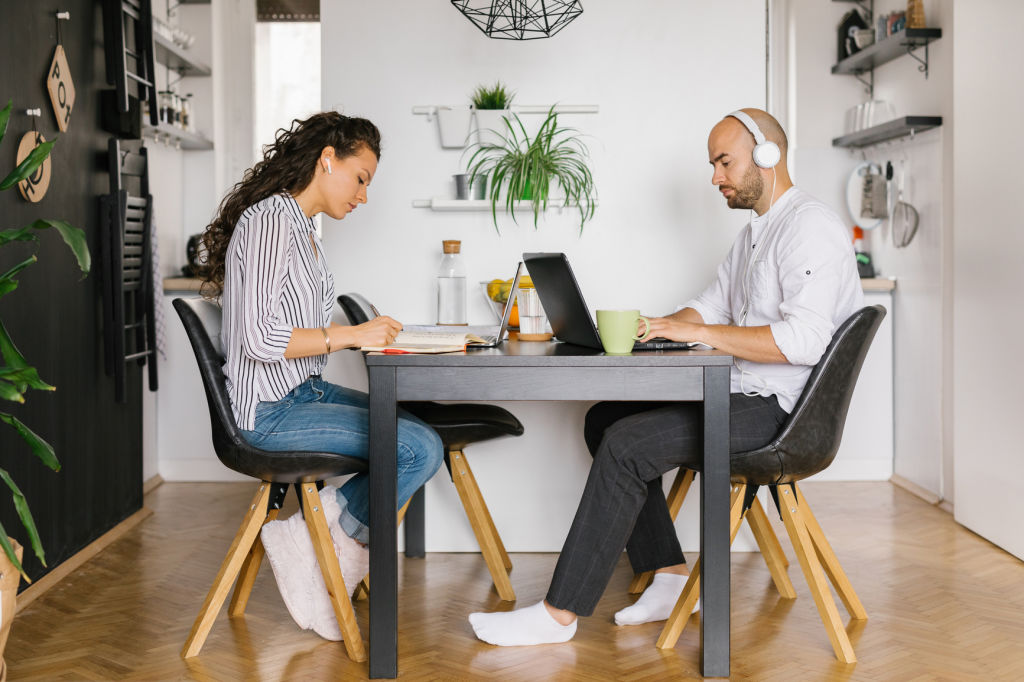
“In a traditional office job, you would have some sort of motion in your commute to work – even if it’s walking from the car to the office – and then in the office, you walk to get a coffee or stroll to get some lunch. And all of that incidental movement adds up.”
When you’re working from home, this incidental movement can be done while getting a few things done around the house.
Not only will this increase your movement and decrease your sitting time, it can also boost your productivity both in your work and in your home life (which, by the way, are now integrated rather than two separate parts of your life).
Feeling guilty about using the workday to do your own things? Kate Christie, director and founder of Time Stylers, suggests we remember that there is a lot of “wasted” time in a traditional workplace. “There are internal meetings that go on forever, chats around the water cooler, and going out for coffee,” she says, adding that we can reclaim this time for our own purposes when we work from home.
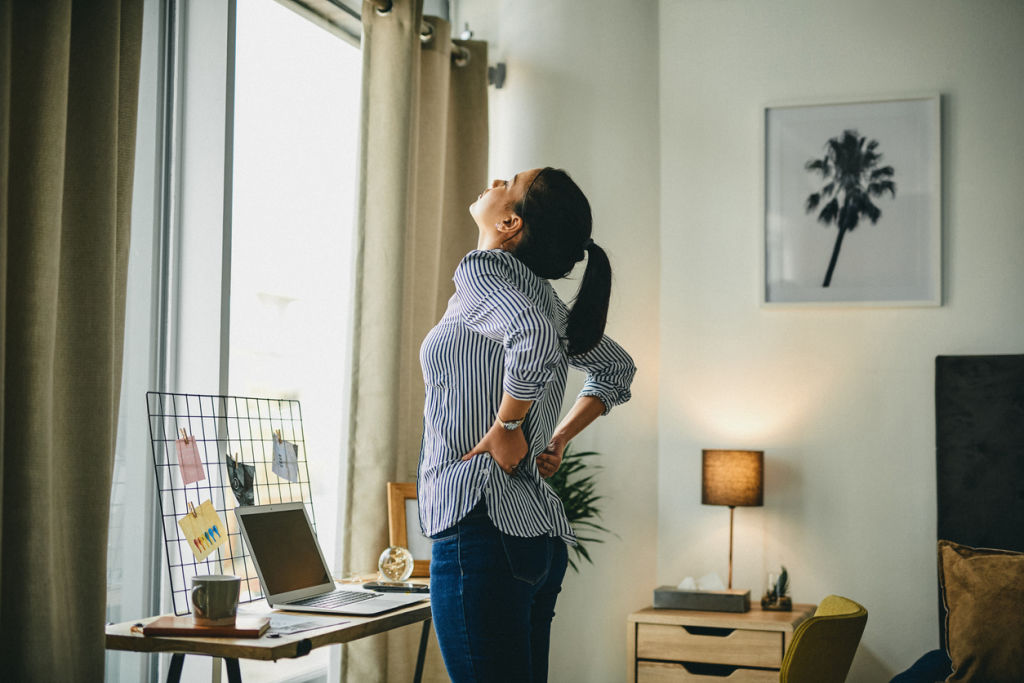
“At home, you’re likely much more focused and productive, so you can cut yourself some slack and do some things that you need to get done.”
Here are five ideas for home tasks to do during your work-from-home day.
Cook tonight’s meal

Whether you love or hate cooking, the evening meal has to be prepared. And it’s a surprisingly productive way to spend your lunch break.
“A complete task shift is the best kind of break,” Christie says. “Doing something creative is perfect, and cooking the meal or getting some of it ready to go fits the bill, and is a really good use of your time.”
“It gives your brain a break; you’re thinking about the recipe rather than work so that when you get back to work, you’ll be really productive.”
Hang out the washing
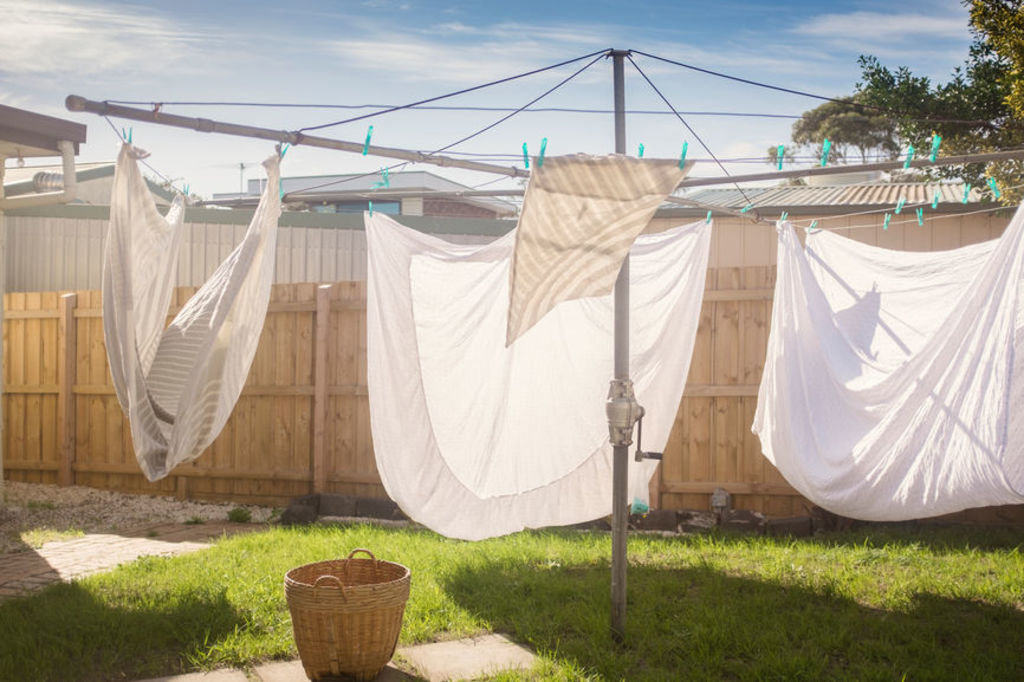
It’s the perfect chance to stand up, move a little and get some fresh air.
“Hanging out a load of washing is like doing squats for five minutes: you’re bending down and standing up, and movements like that are great,” says Kilkenny.
“It’s giving your body the opportunity to be in a different position, and the more you can change your position during the day, and get your body moving from point A to point B, the better off you’ll be.”
Get out in the garden
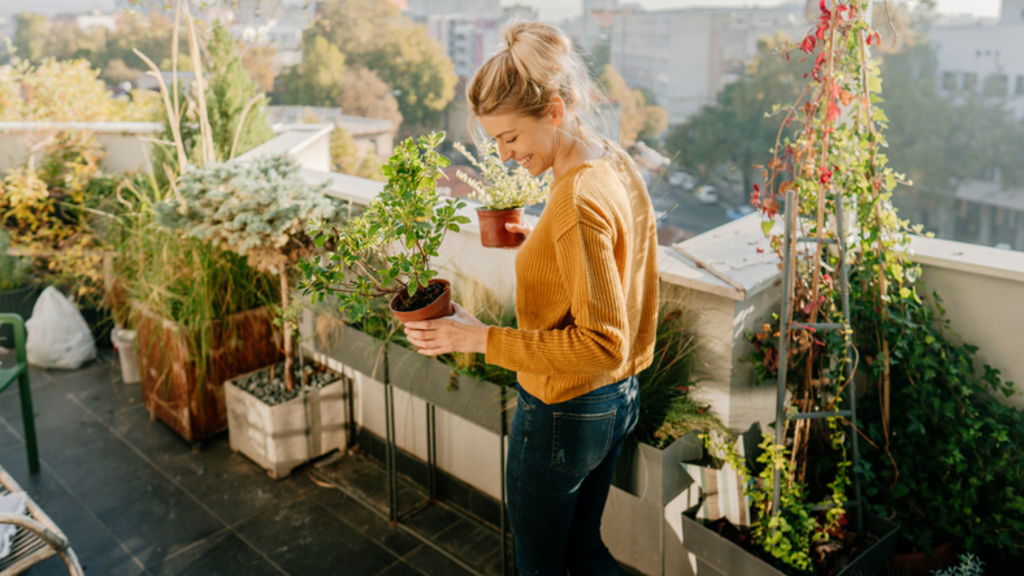
“Watering the garden is a great thing to do in a break: you’re walking around and standing up tall, which is the opposite to sitting at a desk,” Kilkenny says.
But if you’re headed outside in your break, choose your tasks wisely. “Weeding the garden in a short break probably isn’t a great idea, because you’re bending down and putting yourself in a very forward position like you do at your desk,” says Kilkenny.
“It’s about changing position and adding in movement.”
A quick food shop

Weekday evenings are chaotic. We tend to spend our after work hours racing around, picking up some groceries, getting dinner made, cleaning up, and getting everyone ready for the next day.
But if you can knock out some of these tasks during the day, your evenings are likely to be much calmer. Something as simple as a quick food shop to grab what you need for dinner and the next couple of days gets you out and moving, and it eases your evening load.
This flows on to become a benefit for the whole household, Christie says. “If you’re not constantly rushing, it means you can have some mindful time, sit down with your family and talk about their day, and go for a walk.”
“It makes for a more peaceful family existence.”
Potter about
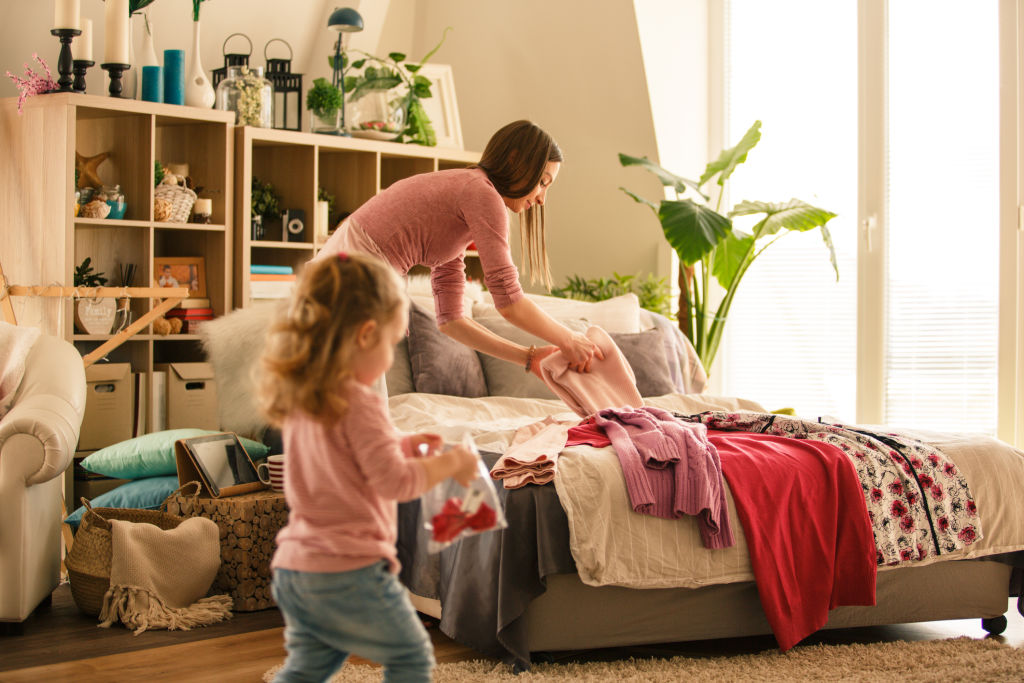
Whether you’re wandering the garden to tidy up, folding some washing, or moving from one small task to another, some gentle pottering can be a beneficial way to spend a break.
“This is movement combined with mindfulness, which is fantastic for relaxing the brain and the body,” says Kilkenny.
“It’s not necessarily exercise, so it won’t increase your fitness, but it’s so important to keep your body moving so that it can continue to function well.”
“Just remember: get up and move often, just as you would if you were working in an office building.”
We thought you might like
States
Capital Cities
Capital Cities - Rentals
Popular Areas
Allhomes
More

